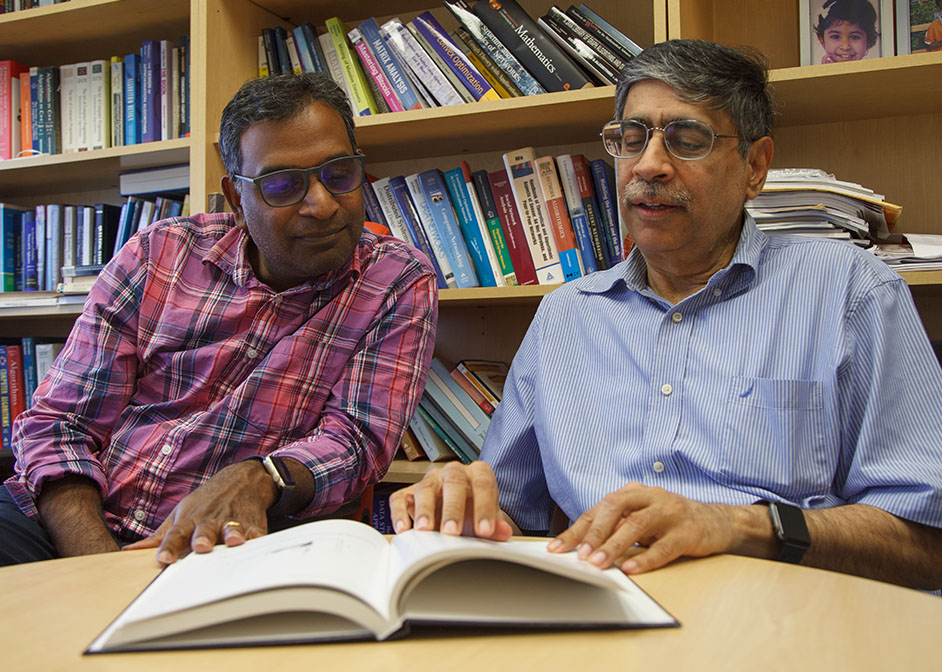UH is One of 50 Minority-Serving Institutions to Receive Defense Department Support
The constant threat of cyberattacks looms large in today’s digital world. Researchers at the University of Houston are working to find ways to strengthen cybersecurity through machine learning.

The Department of Defense (DoD) Army Research Office awarded Rakesh Verma and Gopal Pandurangan, professors of computer science at the UH College of Natural Sciences and Mathematics, a four-year, $798,530 grant to support research into machine learning’s abilities to thwart cyberattacks.
The grant is part of the DoD’s Historically Black Colleges and Universities and Minority-Serving Institutions Research and Education Program. The awards support research in areas deemed a priority by the department.
UH is one of 50 institutions across the country to receive funding from the program. Verma and Pandurangan’s award was the result of a national merit competition in which 130 proposals were reviewed.
Improving Cybersecurity Monitoring
Machine learning has become a critical tool in preventing cyberattacks due to its ability to analyze a wide range of datasets, detect anomalies and adapt quickly to changing situations.
One of the challenges in cybersecurity is dealing with false alarms. Machine learning can help reduce these false positives by becoming more accurate over time to better enable security teams to intercept genuine threats.
Verma and Pandurangan’s project, “Tackling Cybersecurity Attacks and Software Vulnerabilities using Machine Learning,” uses machine learning with the goal of identifying and predicting when attacks could occur.
A Two-Fold Project to Combat Cyberattacks
“We are looking at deceptive attacks such as phishing in the form of emailed job scams,” said Verma. “We also want to use machine learning techniques to try to find portions of the code that may contain bugs.”
Another project component involves using distributed machine learning to develop scalable algorithms for analyzing large data sets as well as decentralized machine learning methods to analyze data without risking data privacy.
“We’re looking for a way to identify potential cyberattacks without sharing data,” said Pandurangan.
Both Pandurangan and Verma agree that they make a well-balanced team for the project. Pandurangan is a proven researcher in the field of distributed computing and algorithms, while Verma’s areas of expertise are cybersecurity and data science, including machine learning and natural language processing.
Ensuring Cyber Safety Starts with Research
Pandurangan and Verma envision their research leading to the development of a program to help identify cyber threats in emails and warn users before they take action to initiate an attack.
“We’re aiming for something that will make the internet safer for everyone,” said Verma. “For now, we’re focused on the research that we hope will lead to something that will benefit the general public.”
- Chris Guillory, College of Natural Sciences and Mathematics